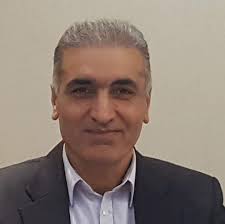-
Intra-Kurdish negotiations in Syria and the new Guinness record

When the "Guinness Breweries" director Hugh Beaver from Ireland went on an entertainment shooting party, he discovered by the 'game bird' that the golden plover was faster than the red grouse. Then the Guinness Book of Records idea became a fact in 1955, essentially based on achievement and success. Hence, the idea of such world records is always related to the success of any aspects of life that can benefit humanity. That is why the majority of Syrian Kurds are disappointed regarding the Kurdish-Kurdish marathon of negotiations and they believe that such ways of dialogue don't even have a chance to knock the back door of the Guinness World Records. Kurdish
Going Back to the current ongoing intra-Kurdish negotiations in Syria, the Chief Commander of the Syrian Democratic Forces SDF general Mazloum Abdi in late 2019 launched a new initiative between Kurdish parties after the Turkish occupation of SereKaniye and Tel Abyad and Afrin in 2018. The initiative for dialogue between the Kurdish National Council KNC and the Kurdish National Unity Parties KNUP was also supported by the former US envoy William Robak. In 2020 both parties have reached the first and second phase of the agreement that includes a joint political vision for Syria, a federal system of governance, the Kurdish question, and the establishment of the Kurdish political authorities. Since September 2020, the third phase of negotiations has been a dead-end despite the fact that four American envoys have repeatedly been changed including the current one David Brownstein who is leading now the rally of the talks.
Before the US initiative for Kurdish negotiations, France also has launched an initiative in August 2019 for intra-Kurdish dialogue with the purpose to unify the Kurds to participate in the peace process in Syria, but unfortunately, the initiative did not succeed. At a glance at the long-term history of intra-Kurdish negotiations, we will be found that the first dialogue has begun between the PYD and KNC in June 2012. The two parties have signed the Hawler Agreement1and established the Kurdish Supreme Committee with three joint committees that include: Political Committee, Military Committee, Services Provision Committee. In December 2013, the Presidency of the Kurdistan Region of Iraq called for the Hawler 2 conference. Despite both parties, PYD and KNC, has reached the new agreement but again they failed to succeed because of many unreasonable causes. Like other agreements, in 2014 the KNC and PYD met in the Kurdish city of Duhok under American auspices, and they agreed to form the “Kurdish Political Authority,” a 30-member body—12 representatives from each party and six from independent parties, but differences returned again as usual.
Arguably, the two Kurdish parties should understand the importance of the dialogue for the Syrian Kurds and their presence in the Geneva peace process and in the Constitutional Committee as well. Consequently, the Kurdish reconciliation will be the only way, with the American presence, to protect the Kurds from the Assad's regime, Turkey, opposition, and Iranian militia, and with the Russian green light. Otherwise, such an opportunity of change in Syria and with the presence of such international coalition and US, might not repeat again under such period that Kurds in Syria can fulfil their ambition of autonomy or federal region. Kurdish
by: Zara Saleh levant

You May Also Like
Popular Posts
Caricature
BENEFIT Sponsors BuildHer...
- April 23, 2025
BENEFIT, the Kingdom’s innovator and leading company in Fintech and electronic financial transactions service, has sponsored the BuildHer CityHack 2025 Hackathon, a two-day event spearheaded by the College of Engineering and Technology at the Royal University for Women (RUW).
Aimed at secondary school students, the event brought together a distinguished group of academic professionals and technology experts to mentor and inspire young participants.
More than 100 high school students from across the Kingdom of Bahrain took part in the hackathon, which featured an intensive programme of training workshops and hands-on sessions. These activities were tailored to enhance participants’ critical thinking, collaborative problem-solving, and team-building capabilities, while also encouraging the development of practical and sustainable solutions to contemporary challenges using modern technological tools.
BENEFIT’s Chief Executive Mr. Abdulwahed AlJanahi, commented: “Our support for this educational hackathon reflects our long-term strategic vision to nurture the talents of emerging national youth and empower the next generation of accomplished female leaders in technology. By fostering creativity and innovation, we aim to contribute meaningfully to Bahrain’s comprehensive development goals and align with the aspirations outlined in the Kingdom’s Vision 2030—an ambition in which BENEFIT plays a central role.”
Professor Riyadh Yousif Hamzah, President of the Royal University for Women, commented: “This initiative reflects our commitment to advancing women in STEM fields. We're cultivating a generation of creative, solution-driven female leaders who will drive national development. Our partnership with BENEFIT exemplifies the powerful synergy between academia and private sector in supporting educational innovation.”
Hanan Abdulla Hasan, Senior Manager, PR & Communication at BENEFIT, said: “We are honoured to collaborate with RUW in supporting this remarkable technology-focused event. It highlights our commitment to social responsibility, and our ongoing efforts to enhance the digital and innovation capabilities of young Bahraini women and foster their ability to harness technological tools in the service of a smarter, more sustainable future.”
For his part, Dr. Humam ElAgha, Acting Dean of the College of Engineering and Technology at the University, said: “BuildHer CityHack 2025 embodies our hands-on approach to education. By tackling real-world problems through creative thinking and sustainable solutions, we're preparing women to thrive in the knowledge economy – a cornerstone of the University's vision.”
opinion
Report
ads
Newsletter
Subscribe to our mailing list to get the new updates!






















